Select Works of Sigmund Freud (5 vols.)
Digital Logos Edition
This product has been transferred from Community Pricing to Pre-Pub. The actual funding level may be lower than it appears, which could delay production. The amount of funding still needed will be evaluated and updated soon.
Overview
Though his work is no longer prevalent in practical psychology, Freud remains an important figure across the humanities and in the history of psychology. This collection contains some of his most important work, including The Interpretation of Dreams and Totem and Taboo. Freud’s work is consistently noted for its readability, making these primary sources an excellent place to access the influential thought of the man who founded psychoanalysis and brought words like repression, the unconscious, libido, id, ego, and superego into common use.
With the Logos edition, these valuable volumes are enhanced by cutting-edge research tools. Important terms link to dictionaries, encyclopedias, and a wealth of other resources in your digital library. Powerful topical searches help you find exactly what you’re looking for. Tablet and mobile apps let you take the discussion with you. With the Logos edition, the most efficient and comprehensive research tools are in one place, so you get the most out of your study.
Key Features
- Provides access to the thought of the founder of psychoanalysis
- Explores Freud’s influence in literary, historiographical, and sociological theory
- Includes the influential works The Interpretation of Dreams and Totem and Taboo
Product Details
- Title: Select Works of Sigmund Freud
- Author: Sigmund Freud
- Volumes: 5
- Pages: 1,624
- Resource Type: Collected Works
- Topic: Modern Philosophy
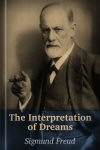
Of this, one of Freud’s earliest and still perhaps his most widely-read works, he said, “Insight such as this falls to one’s lot but once in a lifetime.” Examining dreams was an integral part of Freud’s psychoanalysis, and in The Interpretation of Dreams we see the outline of most of the theory that would be fully developed through his life. The initially unpopular book rose to prominence along with its author in the early twentieth century, and is a classic in the history of psychology. Though its prevalence as a scientific resource for psychologists has diminished, it has risen in importance in the humanities as an important piece of sociological, historiographical, and literary theory.
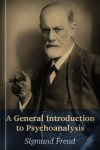
This introductory volume collects 28 lectures delivered by Sigmund Freud to laymen. They carry a conversational tone that is easy to follow and are an excellent resource for those seeking to gain an understanding of Freud’s contributions to Western science and philosophy. They highlight how Freud’s theory have been frequently adapted and expanded upon in the humanities.
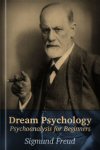
Freud’s professional work was consistently noted for its readability. Dream Psychology is an introductory text to interpreting dreams in the psychoanalytic system presented in Freud’s own artful and conversational voice.
The publishers of the present book deserve credit for presenting to the reading public the gist of Freud’s psychology in the master’s own words, and in a form which shall neither discourage beginners, nor appear too elementary to those who are more advanced in psychoanalytic study.
—Andre Tridon, author, Psychoanalysis and Love
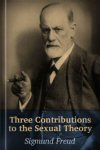
This volume contains three of Freud’s most significant essays, “The Sexual Aberrations,” “The Infantile Sexuality,” and “The Transformation of Puberty.” They develop Freud’s theories of sexuality as the primary force behind neuroses, particularly how it relates to childhood.
[These three essays] occupy—brief as they are—an important position among the achievements of their author, a great investigator and pioneer in an important line.
—James Jackson Putnam, founding member and first president, American Psychoanalytical Association
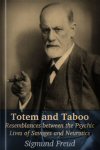
In Totem and Taboo, Freud applies his psychoanalytic theory to archaeology, anthropology, and religion, investigating how psychoanalysis affects more than just individuals, but society at large. Anthropologist Géza Róheim considered the work a landmark study in the history of anthropology and contemporary philosopher René Girard still calls Totem and Taboo influential to his thought, especially Freud’s idea of “collective murder.” The book contains four essays: “The Horror of Incest,” “Taboo and Emotional Ambivalence,” “Animism, Magic, and the Omnipotence of Thoughts,” and “The Return of Totemism in Childhood.”
About Sigmund Freud
Sigmund Freud (1856–1939) was an Austrian neurologist and the founder of psychoanalysis. He earned his credentials as a medical doctor from the University of Vienna and his early research focused on cerebral palsy, aphasia, and neuroanatomy. He published perhaps his most important work, The Interpretation of Dreams, in 1900 and founded the International Psychoanalytical Association in 1910. He influenced many psychologists, including Alfred Adler, Jacques Lacan, and, most famously, Carl Jung. He fled Nazi Germany in 1938. In 1939, suffering from painful, inoperable buccal cancer, Freud requested and received lethal doses of morphine.
As the founder of psychoanalysis, Freud is best known for his concepts and techniques such as free association, transference, the Oedipus complex, dream interpretation, repression, the unconscious, libido, the death drive, and the id, ego, and superego. Though Freud’s thought is no longer prevalent in most psychiatric circles, he remains influential across the humanities—including literary criticism, philosophy, sociology, and feminist theory—and many of his ideas have been thoroughly absorbed into Western popular culture.
Reviews
2 ratings
Br Damien-Joseph OSB
4/6/2021
Not including The Future of an Illusion was a bit of an oversight. That text is *the* psychological/philosophical critique of Christianity from a hardened atheistic perspective, and should be required reading for anyone interested in apologetics, religion, and understanding the widespread atheism of our age. Especially those asking "what does Freud have to do with Jesus" should read this short text (which is unfortunately not included at the time of this posting) and reflect on the state of contemporary Western culture.
Nathan Rice
1/4/2018
Freud made groundbreaking contributions to the practice of counseling. Those going into Christian Counseling, like my wife (who would like this set for her studies), would do well to be familiar with his works and learn from what he did well.Pat
8/5/2014
Freud is incredibly important for the academic study of religion. I'm excited Logos is pursuing Freud in Community Pricing, though I would like to see Future of an Illusion included. Even if you disagree, it's helpful to engage his work. Clearly his theories on the history of Israel are totally insane (excuse the pun) as any scholar of biblical studies (who has read Totem and Taboo) will tell you, but the guy is important in our collective intellectual history. Keep going this direction, Logos! How about some Marx next?